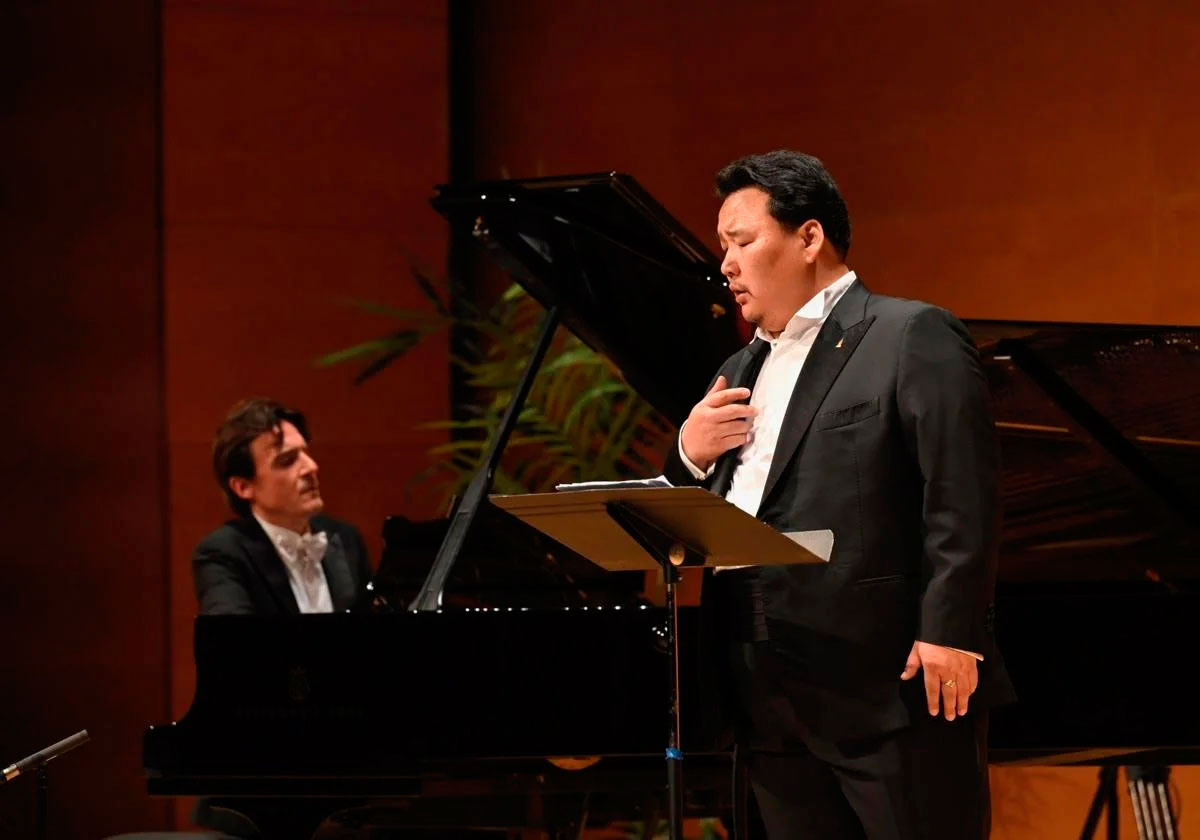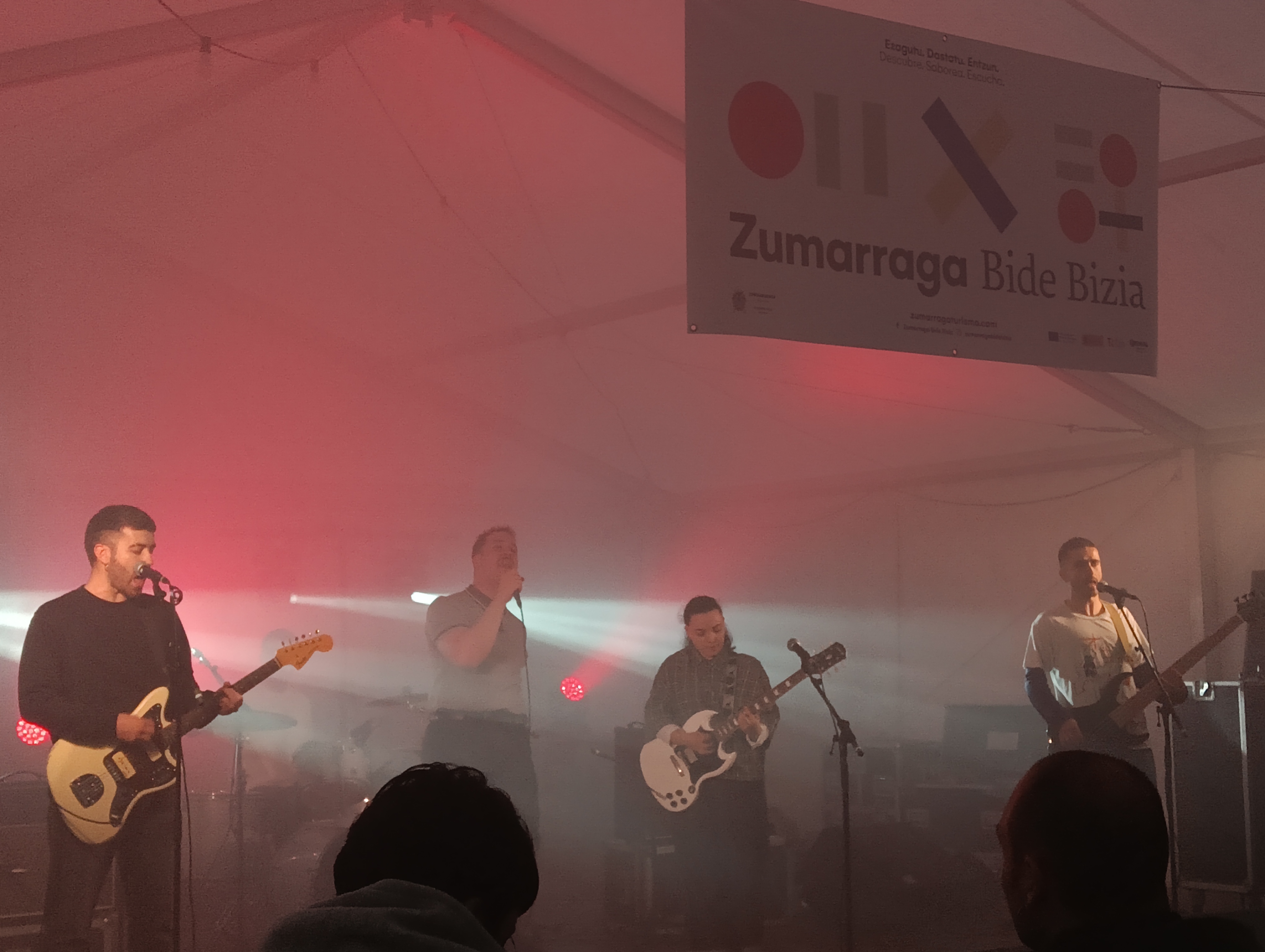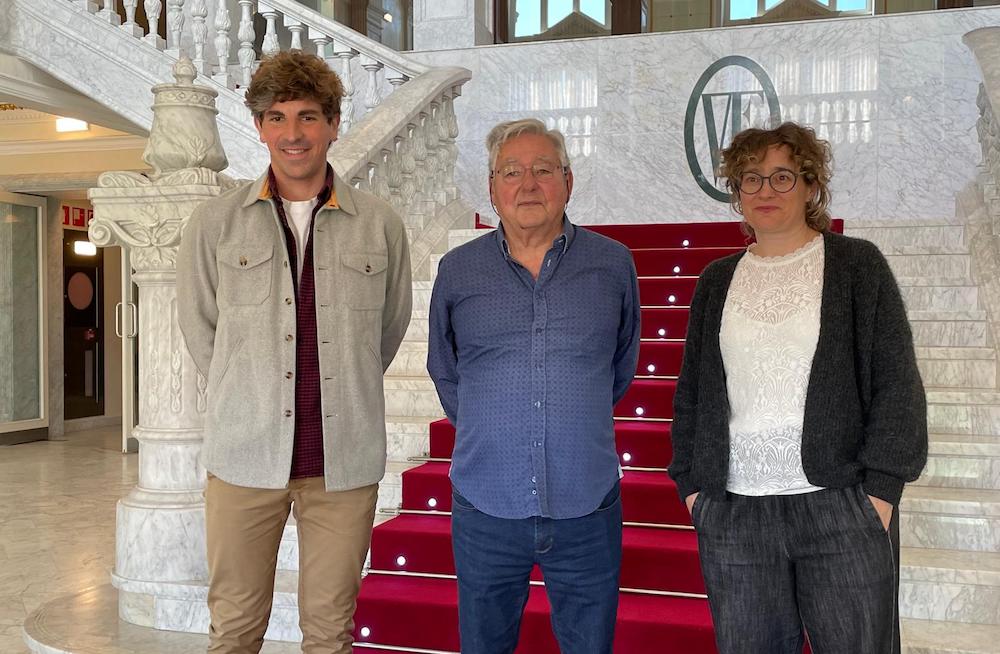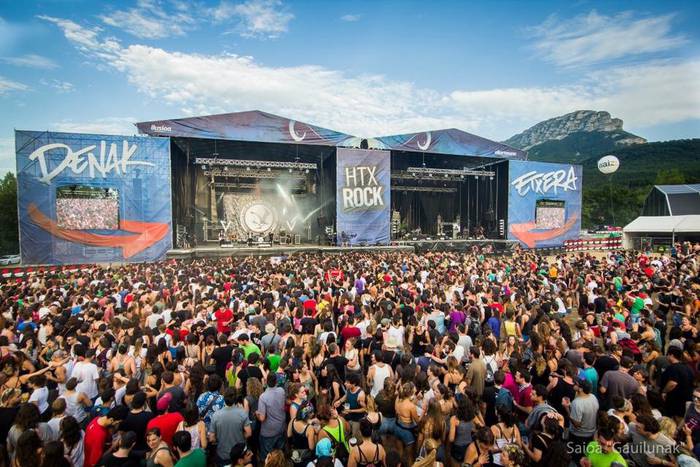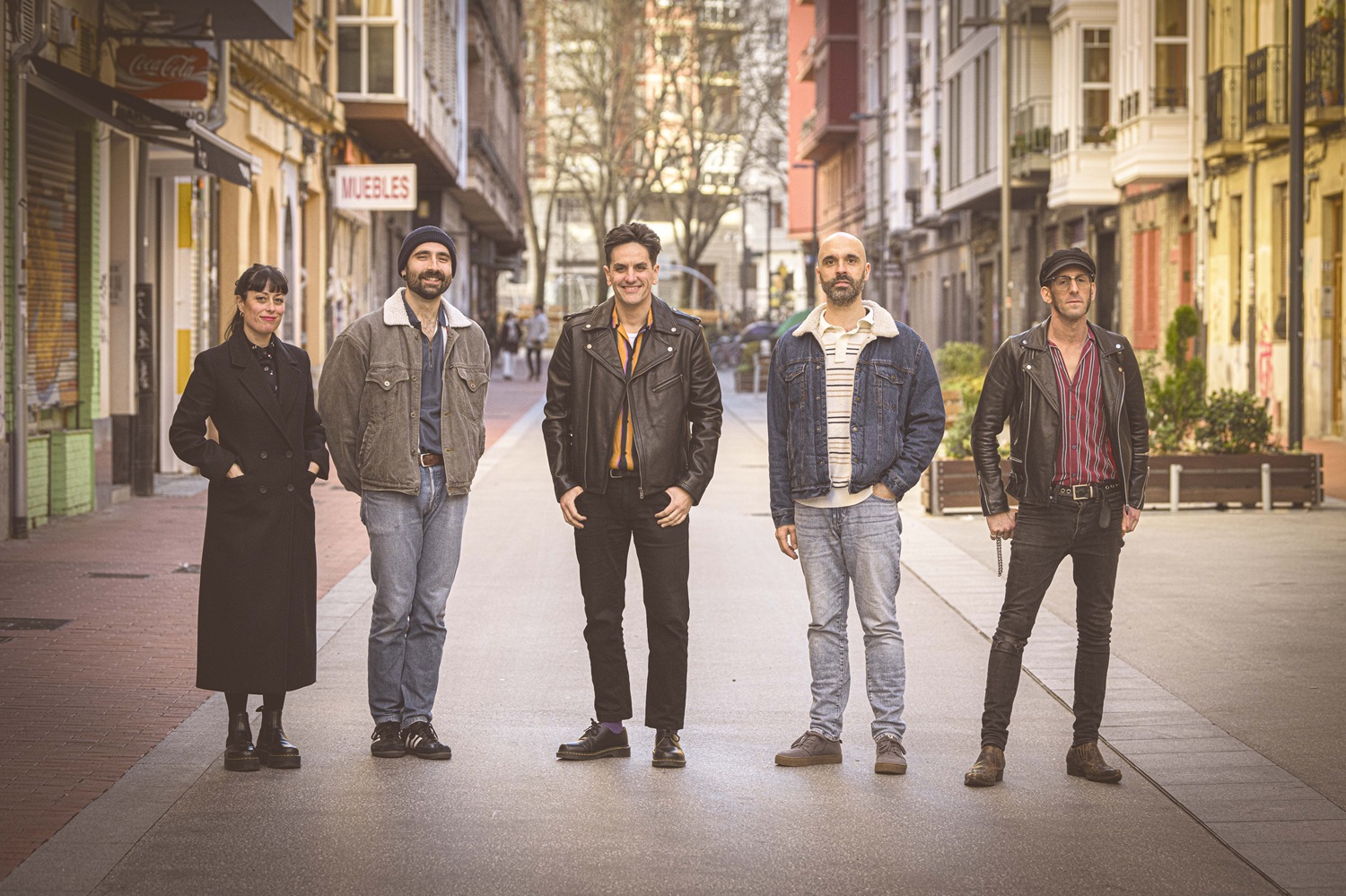"The self-demands of women and the complexes and limits we have are very different"
- Olatz Salvador will teach this Wednesday, between 17:00 and 20:00 hours, the "Women* on the Musical Scene" course at the Tolosa School of Empowerment, which will take as a starting point the group experience and as a soloist. We have interviewed him.

First with the Skakeitan group, and in the case of presenting a solo project, Olatz Salvador (Donostia, 1990) has stepped through many scenarios in recent years and in Tolosa will start with the sensations and experiences gathered in them.
As a solo woman, what sensations have you gathered throughout your career?
My musical career started in a group of eight people in Skakeitan, and I'm still there. I'm a single girl in the group, and also in the individual working group. In many concerts, I saw the same panorama and I was struck by it. Therefore, from these reflections arose the need to do a job.
Are those who feel both in the group and with your band, from the audience or from the group?
I don't know. I have been able to demonstrate that, when I come together with female musicians, a different environment is created. We don't live the same thing, for example, getting onstage, or some things related to having a project: the level of self-demand, and I've seen that the complexes and limits we have are very different.
When you first climbed onstage, did you do it comfortably?
No. The first times have never been comfortable for me and the truth is that I have become very nervous; I still have a tendency to get very nervous. So it's understandable, from those early experiences, that that hasn't been decided in your place, and that you don't follow it. I've resisted until I learned to enjoy that place, because it's not easy.
The book 'kontrako Eztarritik' by Uxue Alberdi gathers the testimonies of Bertsolaris women, but many things related to self-demand and fear can be compared with musicians. In that sense, has the voice and the way of being in the body changed since it began?
Yes, yes, I've changed them and I've realized that people have told me. With the voice, for example, I have realized that I sing at a higher volume than other women; I think it has been a mechanism to reclaim my place. I didn't do it on purpose, but today it looks like this. And with the body, in the Skakeitan I feel more freedom, because I'm not on the front line and on a leading level. When I am the protagonist, I still have complexes to overcome, with my body and with my way of moving.
You say that the encounter with other female musicians changes the perspective a lot. Do you share this kind of experience with you?
Yes. The female musicians have met specifically to talk about these things and make a little reflection. There is also a moment of emptying, as we tell ourselves anecdotes and uncomfortable situations.
For example?
Stories you can have with technicians or with people in the organization. For example, many times they think you can be someone's partner and you're not a musician. When women meet, we don't feel so alone in our atmosphere.
Have you ever felt the need to defend, underline or explain your work over and over again?
The truth is that I have felt great recognition in my solo project, and I have not had to stand out. In any case, I have been called on more than once because the organisation had to meet its women’s quota, exactly as some have explained to me. That's pretty painful for most music women. When we are called by the fact that we are women, we don't feel valued as musicians. I think it is very difficult to find the balance, because we too want to ensure our visibility at all festivals and parties. But we can't stay there and we can't stay there just because we're women, but because our music is attractive to somebody.
In the presentation text of the course you have also provided an objective information: In Spain, in 2018, the presence of women in music festivals barely reached 20%.
Yes. When I look at the data on paper, I get even more attention. The situation is not unique and much remains to be achieved in terms of quotas. Subsequently, the activities of the groups should also be analysed. In fact, they often hire a group of women to cover the quota, but at the same time, the masculinity models of other groups in the festival are very doubtful. We cannot stay in that woman-man binomial and we must look at everything we are showing.
How can you turn that around?
I think things are slowly changing, when I started making music, because the absence of women was something that was not taken into account. I remember at many festivals, I was the only woman, I just got something on. Now, at least, there's a reflection, this theme has been published, and we feel the need for change. I believe that this is the first step and, from that point on, every organiser should make its commitments. And, of course, citations organised with public money should have the minimum guarantees, because it often does not happen that way. That will bring women to see other women on the stage and more women to enter the path of music. I have that hope.
This change will also require the involvement of the public, will it not?
Yeah, and along that road, I've noticed that when women sing onstage, also in the front lines of the audience, you see more women. There's a kind of mirror effect, or that's what I've noticed.
How do you see women and their bodies in concerts in front of the public?
I would venture to say that there has also been a small click here. A few months ago I saw for the first time women on the front line, without t-shirts. In the past, we would have been more interested in seeing what is common in boys in girls. I've often thought about what would happen, like a colleague who takes off the t-shirt if I took it off. These kinds of dynamics have not yet been naturalized, but, to the extent that we are working, I hope to be able to respond to them normally.
It's on
JOHN DEALER & COCONUTS
Ghost Highway, 2025
------------------------------------------------------
Adin batetik aurrera kontzertuak, diskoak eta kantuak bizkarrean eta burmuinean pilatuta, eta musika entzuteko denbora murritzagoa bilakatuta, taldeak bilatu... [+]
Esperoan
Hiuzz
Self-production (collective slow days), 2024
The group of groups that pass unnoticed is getting bigger, or at least bigger than ever. Although Hiuzz’s Esperoan is a few months old, I didn’t make... [+]
BRN + Neighborhood and Sain Mountain + Odei + Monsieur le crepe and Muxker
What: The harvest party.
When: May 2nd.
In which: In the Bilborock Room.
---------------------------------------------------------
The seeds sown need water, light and time to germinate. Nature has... [+]
Amartuvshin Enkhbat baritonoa
Pianoan: Stefano Salvatori.
Antolatzailea: OLBE.
Zer: Verdi, Mascagni, Leoncavallo eta Giordanoren operen ariak.
Non: Bilboko Euskalduna Jauregian.
Noiz: martxoaren 29an.
Aramu + AimarZ
When: April 26.
In which: The Zumarraga Open Field.
---------------------------------------------------------
The website of the City Council says: "The tourist brand Viva Viva and the festival of the same name are designed to show the world the soul of... [+]
Transparent Beings
When: April 20th.
In which: In the Plaza of the Castle of Pamplona.
-----------------------------------------------
The concert is only half an hour away in the Plaza del Castillo de Pamplona; but it is still half empty, because it is raining. Whether... [+]










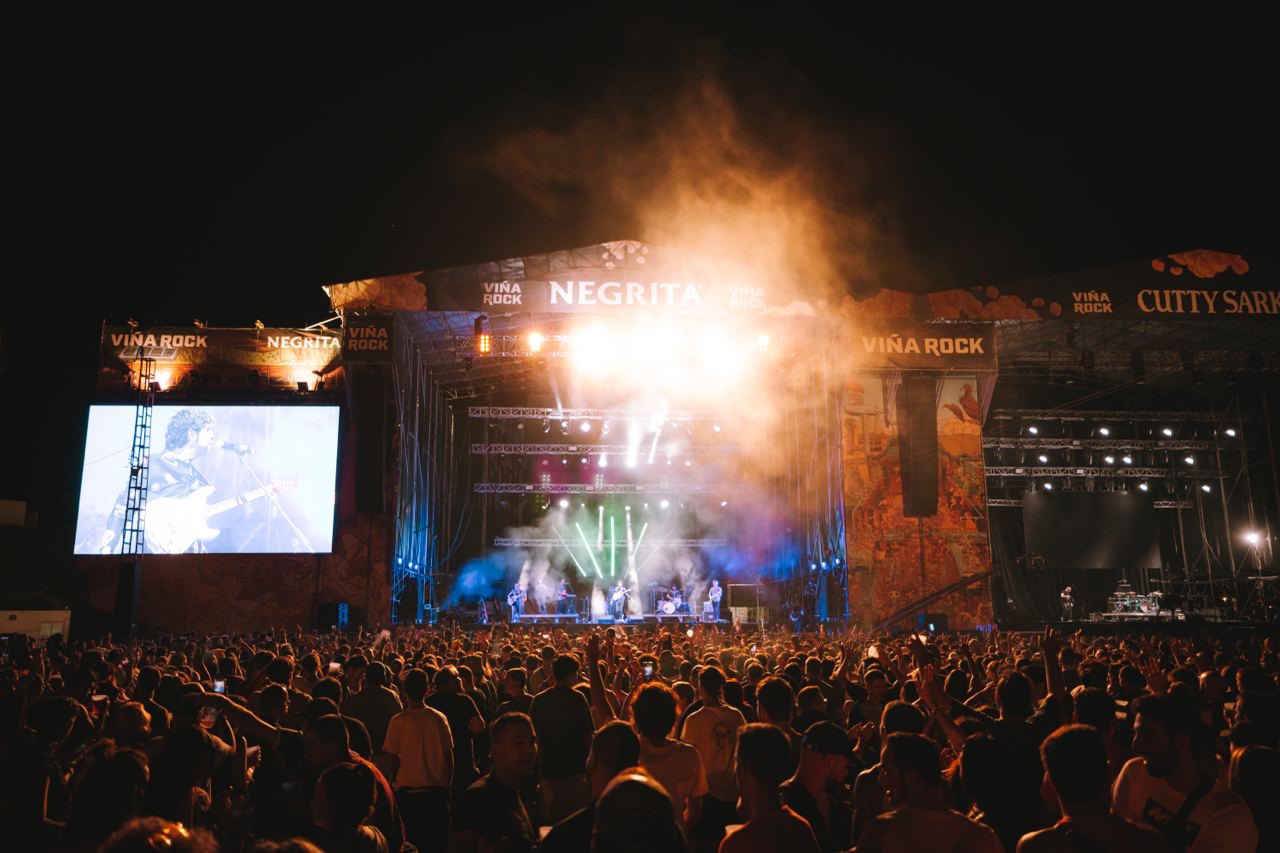
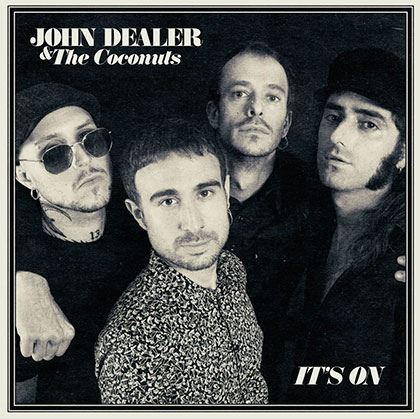

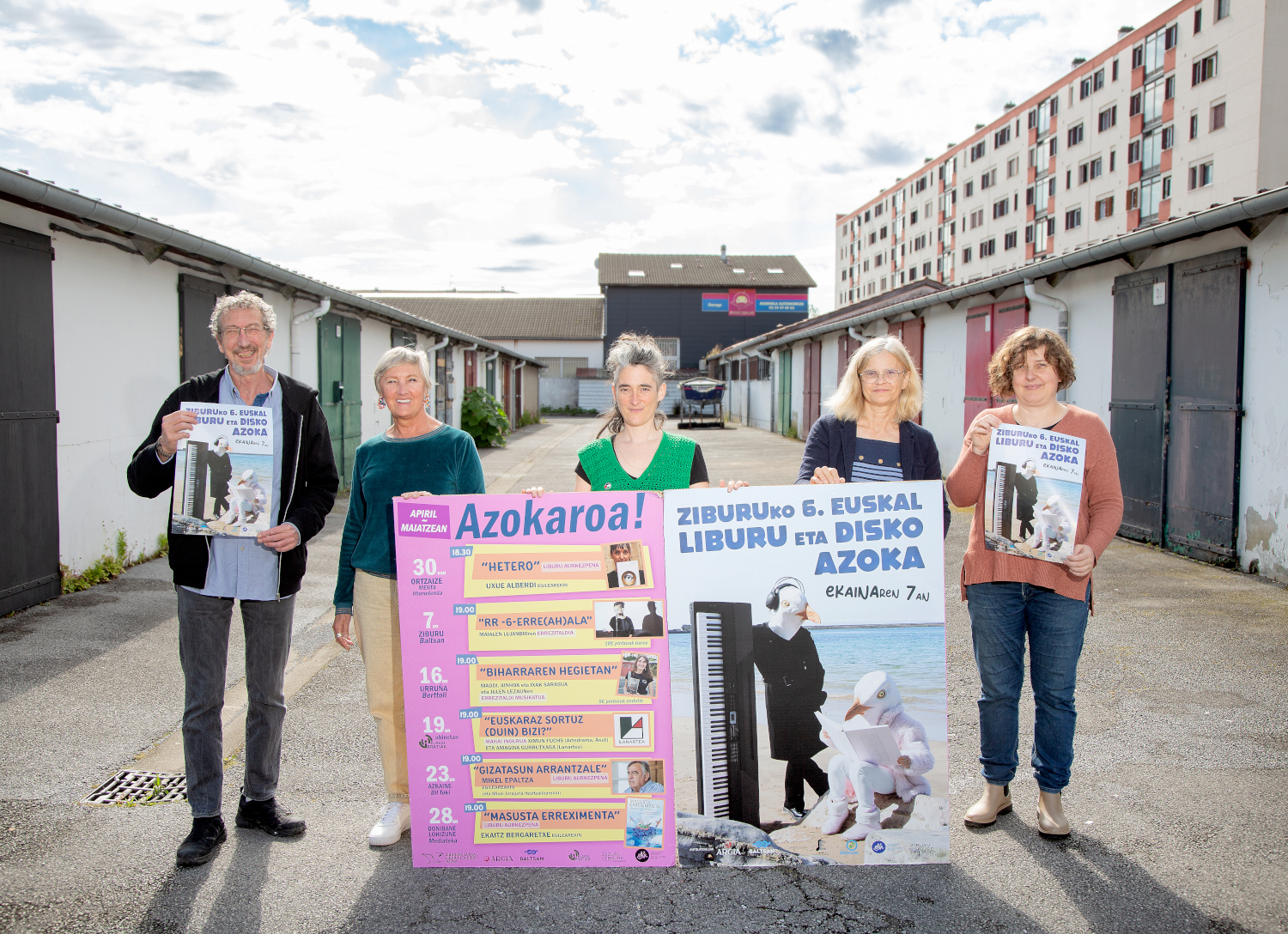

.jpg)

